By Daniel J. McGraw | Photos Bob Perkoski
It is Saturday afternoon at St. Colman, and the basement parish hall is booming with activity. There are hundreds of people here, some getting help finding a job, some a free hot meal, some hitched, and some, a group of little flower girls, giggling in beautiful shiny satin dresses with white bows.
In the kitchen, volunteers are preparing dinner for the needy. The menu is pork tenderloin with gravy, scalloped potatoes, green beans, cupcakes and cookies. Helping get the meal ready is Andi Gazda. Born, raised and educated in this Gordon Square neighborhood parish, Gazda now lives in Parma. She often comes back to volunteer. “This is my home parish, and it doesn’t matter where we live now,” she said. “We had a crisis in our family some years ago, and got through it with the help of the people at this church, and we are here to help anyone else.”
Gazda doesn’t want to bash the church nearby her in Parma, but it is apparent it doesn’t serve much use to her and her family. “We stopped going to church there,” Gazda said. “It just seems that they were about money, and they never even thought about doing social programs. A church has to be more than just sitting in it for an hour on Sundays, doesn’t it?”
Debbie O’Boyle of Westlake has similar feelings. At 56-years-old, she and her husband started coming to St. Colman’s a few years ago, “because we felt like being a Catholic who just punched the clock on Sunday” didn’t fit in with what they wanted out of life. “I was never much of a joiner in things like this, but I just noticed the optimism here and how people wanted to make a difference,” she said.
While dinner is being served, I sit down with Loren Zbitniewski. Zbitniewski hasn’t worked steadily for about five years. His housing is taken care of by EDEN (Emerald Development and Economic Network) at nearby West 78th and Madison Avenue, but food, transportation and employment are difficult. He grabs a meal at St. Colman’s when he can, and uses the computers the church provides for job seekers.
Zbitniewski, 52, lived with his father in Parma until his old man died in 2001. He had some alcohol problems in the past, but says he hasn’t had a drink in about ten years. His work experience has been in apartment maintenance and custodial work.
“I’ve tried really hard to get a job, and will keep trying,” he said as kids in Halloween costumes served up the pork plate. “But no one seems to want to hire anyone my age. And I don’t have car, so finding a job I can get to is hard. But the computer I can use here is helping.”
As busy as the church is, it makes no judgments on who gets help and who doesn’t. Eileen Kelly, who directs the outreach programs at St. Colman’s, put it succinctly. “Our job is pretty simple when you get right down to it,” she said. “When someone comes to the door and knocks, we answer it.”
*****
St. Colman’s is led by Father Bob Begin, a septagunarian who, when conducting mass, is rather regal in his robes and looks upon his congregation with an expression that can only be described as animated elation, eyes wide open and mouth agape. During one mass, Begin explained to the 40 or so children wearing home-made paper crowns at the white marble communion rail that “when we started trying to bring this parish back a few years ago, we didn’t have many kids in this beautiful church, and now to see all of you just makes me so excited.” The parishioners in the pews cheer and the kids look back at the crowd, their eyes bugged out and their mouths wide open just like their Father.
Begin then begins speaking more slowly and quietly. He tells the kids of his 13-year-old brother drowning in the Rocky River back in 1947, when Bob was nine years old, and how hurt he was by this horrible death at such a young age. How he missed his brother so much that he begged his mother almost daily to take him to the cemetery to see him. And how his mother explained to him that he could see his brother in church, because he’s with God and God is in your heart and God is really there when you receive communion. As Begin says these things, the kids are staring straight ahead and not fooling with their hats of sainthood and the big church is very quiet.
The smile returns and Begin tells the kids that “Jesus and your brothers and your sisters and your parents and all of your family and friends are in your heart and they are there to hug you and for you to hug them. And that’s what God wants you to do, to hug people when they need you, and to allow yourself to be hugged when you need it.”
This may seem to be basic church fare, a minister asking people to love one another and open their hearts and all that religious puffery that most ignore except when they really need it. But here at St. Colman’s, in an old parish that sits in the middle of Cleveland’s poor and needy and hip and trendy, linking the new and the old, there is more resonance. That the church is even open at all, not to mention bustling, is somewhat of a, well, miracle.
*****
Three years ago, this church was left for dead when diocesan money changers counted coins and figured it wasn’t economically viable. The infrastructure built by Catholic immigrants throughout the 19th and 20thcentury had become too large for the shrinking number of Catholics now living in Cleveland. St Colman was slated to be closed. Begin shot off a scathing letter to the current Cleveland Catholic Diocese Bishop Richard Lennon in protest. He criticized the bishop’s plans in an open letter describing the bishop’s actions as “not conducive to the salvation of souls and may truly be harmful.”
To paraphrase another Lennon, John, Begin was basically saying the Bishop’s actions would be painful enough to keep people out of heaven. And he was saying that publicly, to his boss.
 But just a few years later, Begin and his congregation are proving that a church can still be a formidable anchor for a Cleveland community. The attendance numbers and the collection plate funds are hitting the marks the diocese set as the criteria for staying open. It is also serving a role that many churches did 100 years ago in so many Midwest cities by helping refugees—this time from Africa– get established here.
But just a few years later, Begin and his congregation are proving that a church can still be a formidable anchor for a Cleveland community. The attendance numbers and the collection plate funds are hitting the marks the diocese set as the criteria for staying open. It is also serving a role that many churches did 100 years ago in so many Midwest cities by helping refugees—this time from Africa– get established here.
Plus, they are part of an urban redevelopment movement. About two-thirds of the parishioners at St Colman’s are, like Gazda and O’Boyle, suburbanites. Getting them to travel to the Gordon Square neighborhood for church is a twofer for the Gordon Square neighborhood: people come from the suburbs into Cleveland to help the needy with their time and money, and then they might also go to eat and drink and go to theater and sometimes relocate to the inner-city neighborhood.
Begin has figured this out, and is getting increasingly savvy about deploying current demographic and urban trends. “It’s taken us several years to get the patient off life support and out of the intensive care unit,” the priest said. “It is now stable. We’re moving into a new phase. We now have the ability to get the resources to do more.”
*****
Cleveland Magazine is known for its upscale mostly suburban readership, and in this November issue, the cover story is “Burger Kings,” which lists great burgers in Chagrin Falls and Moreland Hills and Akron and Kent. One of them featured is from Cleveland’s Lago restaurant, a burger that costs $56 and is topped with fried lobster and foie gras mousse. Also in the issue is an eight-page advertorial about St. Colman’s that cost the church $12,000. There are wonderful pictures of the architecturally significant twin-spired church completed in 1918, along with stories and photos detailing the outreach programs and the parishioners who volunteer their time and help fund the charitable endeavors. Parishioners see the advertorial as a special recognition of all the good work the church has been doing. It is so nice to get noticed, one of them says.
Begin seems a little puzzled when I asked about the urban church targeting the wealthy suburban readership. “Wouldn’t it be better to use the $12,000 for rehabbing houses for refugees and doing job training programs?” I asked. He is puzzled not because he finds the question offensive, but because the answer seems so obvious to him.
“We cannot continue to go to our parishioners and ask them for five dollars here and ten dollars there to continue these outreach programs,” he said. “What we need now is sponsors, and we need to have conversations with people who are interested in working with us. And a lot of those people live in the suburbs.”
The Cleveland Magazine ad buy was not, actually, a $12,000 expense; it turned out to be a profit-maker for the church. When Begin was planning to do the advertorial, Mark Reichard, the CEO of Maroon Inc., a chemical supplier based in Avon, agreed to foot the $12,000 bill. Reichard had been volunteering at the church as part of the homeless meal program for more than a decade. Begin then got several companies, including Great Lakes Brewing Company in Ohio City, to buy ads within the advertorial space. Those ads brought in an additional $20,000.
So after Begin explained the deal to me, I could see why he seemed puzzled by my question of expenses and philanthropy. He was target-marketing to the audience he needs to keep St. Colman’s in the helping-the-poor business, and he pulled an additional $20,000 out of the transaction to keep the business running in the meantime.
“ I don’t know him real well, “Reichard said, “but he has a deeply profound long term view of what he needs to do to help the poor, and he knows how to use the power of marketing in the suburbs five or ten miles from the church to make that happen.”
Begin has been smartly marketing his church elsewhere as well. Mike De Cesare, a real estate developer who is building new condominium units a quarter-mile from the church, remembers a meeting he attended about a year ago with Begin. Assembled at the parish hall were bankers, real estate developers and businesses hiring lower wage workers.
“We knew a bit about St. Colman’s, but Father Begin and others were able to articulate to us some of the key elements of the programs they offer and what they needed from us in terms of participation,” De Cesare said. As a result of that meeting, De Cesare includes St. Colman’s in a program in which buyers of his $200,000 to $300,000 loft condos receive about $5,000 off their closing costs if they volunteer for 40 hours of church outreach.
 “We have found that people who want to move here, especially from the suburbs, are looking for a sense of community,” DeCesare says. “They find living on a cul-de-sac and not knowing their neighbors is something they don’t want any more and urban revitalization here is very much about people wanting to be more involved in their neighborhood.”
“We have found that people who want to move here, especially from the suburbs, are looking for a sense of community,” DeCesare says. “They find living on a cul-de-sac and not knowing their neighbors is something they don’t want any more and urban revitalization here is very much about people wanting to be more involved in their neighborhood.”
Ariel Clayton is one such example. She is a classically trained violinist who lives in the neighborhood and has used the church for recitals and plays occasionally at masses. She is not Catholic but sees St. Colman’s as an anchor point, a community asset. “St. Colman is an important pillar of social and cultural service, aside from its obvious purpose as a Catholic church,” she wrote in an email.
“They hosted the historic performance by the Cleveland Orchestra back in May, and regularly host classical music performances of all kinds,” she continued. “Their mission to serve the under-served is critical in our mixed-demographic neighborhood, and there’s simply a great sense of security in having a stable, non-government organization alive and thriving down the block.”
Jeff Ramsey, executive director of the Detroit Shoreway Community Development Organization, which oversees development planning for the Gordon square neighborhood and areas south of St. Colman, calls the church “critical” to the neighborhood’s recent redevelopment successes. “Having good restaurants and theater and being close to downtown is important, but if all we are trying to be is hip and trendy, this will all flame out quickly,” Ramsey said. “That is why churches like St. Colman’s are important. They help give people a sense of place, and if this neighborhood is to become revitalized, that is extremely important.”
He sees the work he does and the work of Father Begin as similar: “What we have in common with St. Colman’s is that we are both building a community,” Ramsey said. “Our mission states we are interested in an improved quality of life, and they are interested in that as well. We both want to help with getting people in market housing, and connect with their neighborhood in a meaningful way.”
Begin knows that some of his suburban members might not be as excited about coming down and helping the poor if the Capitol Theater wasn’t showing movies and Luxe restaurant not serving up dishes a half-mile away. And Ramsey knows that people who are thinking about exchanging their cul-de-sac existence for a neighborhood where closeness to your neighbors is not only favored, but necessary will see a strong church as a big plus.
*****
Begin has always been an unconventional priest. He was born in 1938 in Cleveland’s West Park neighborhood, one of 13 children. His father was French Canadian who worked as a pipefitter and later with the Cleveland Fire Department. As was the Catholic practice back then, he enrolled in the seminary after completing the eighth-grade. He was ordained in 1964. He was assigned to various churches locally, and was very involved in programs that helped the poor be fed and gain employment.
In 1969, he organized a protest: he took over St. John Cathedral to condemn the Cleveland Diocese for not being against the Vietnam War. According to an account in the Plain Dealer, two dozen cops wielding billy-clubs moved into the cathedral and arrested Begin and others for trespassing. About two months later, Begin was among nine anti-war activists who broke into Dow Chemical Co. offices in Washington, D.C. to protest the company’s manufacturing of napalm, plastic body bags and Agent Orange. They poured human blood throughout the Dow Chemical offices and threw company files out the windows. Begin got four-years’ probation from Dow incident and was suspended from the priesthood by the Cleveland Catholic Diocese for two years. He spent those two years living and working in homeless shelters.
Today, he sees no problems with what he did with when younger. “The war was stopped earlier than it might have been because people were speaking up about it and we were just doing that,” he said.
In the 1970s he got a law degree by going to nighttime classes at the Cleveland State University Marshall College of Law because he found that many of the poor homeless he was helping needed legal assistance and couldn’t afford it. He stopped making headlines for awhile. But when the Diocese decided to consolidate of parishes recently, Begin again made news.
*****
After Begin sent his open letter to Lennon, St. Colman’s remained open, but not without some simmering resentment between the priest and his superiors. But earlier this year, Begin, turning 75, had to formerly submit his letter of resignation to the bishop as part of church protocol. Since there are few young priests waiting in the wings, bishops generally do not accept the letter of resignation if the older priest is healthy and wants to stay on. But Lennon accepted Begin’s letter.
Begin responded in a manner that shocked some. Rather than do what he has done in the past, namely publicly protest and grandstand a bit, he worked quietly with the diocese for solution. They came up with a compromise: Begin would stay on another year (through next fall), and help the transition to a new pastor. That new pastor will be Caroli B. Shao of Tanzania, an African priest that Begin insisted that the bishop appoint.
*****
It is Wednesday night at St Colman’s, and in an old classroom of the former school building, computer classes are up and running. The church has a program that will give anyone a computer, which has been donated as a gift and then rehabbed, if they take six two-hour classes.
As part of doing the research on this story, I volunteered to be an instructor in the class. I sat next to those wishing to learn how to use a computer and tell them how to move a mouse. I am adept at instructing the students on how to click on an “x” to get rid of things.
Next to me was a 60-year-old refugee from Liberia with no prior computer experience. I decided to be helpful, and funny, so I explained to him that if Moses was going up to the mountain to get the ten commandments, God would now give them to Moses on an iPhone instead of carving them on stone tablets. Same commandments, I tell him, just a different platform on which to read them.
 I introduce myself and ask him his name. “Moses” he tells me. He smiles. I smile.
I introduce myself and ask him his name. “Moses” he tells me. He smiles. I smile.
As we talk, Moses tells me a bit about himself. His last name is Yonly (I now call him “Moses the Only”) and he came to the United States in 2004 because of his tribe was being killed by the seemingly unending civil war in Liberia. The U.S. paid for his transport as part of their political refugee program, and he has paid that back (about $5,000). He works as a dishwasher at a hotel.
I tell him my story. My paternal grandmother came here in 1900 at age nine by herself, mostly because the British rule in Ireland had made her family indentured servants on their farm in the poor County Roscommon, and she was sent to Cleveland to live with an aunt and uncle. I am a result of political refugees, I tell him.
I show Moses how to find info on Liberia, and he is able to read the newspaper in Monrovia and watch videos of women singing and dancing in his native language of Krahn. As he does so, his eyes are big and his mouth wide open with excitement.
“I don’t ever want to go back there to live,” Moses said. He is doing the computer class “for me, and for my family back there so I can send them money.” Hearing some music in Krahn is a plus.
A few days later, I asked Begin why he took the deal with the Bishop. “I was just more concerned that we needed to keep this parish going in the direction we have worked so hard to do, and this has never been about me,” he said. He said he has no immediate plans, but does indicate he may work with real estate developers to bring more affordable housing and retail centers to the neighborhood around the church. In some way it is an odd transition, the man who threw blood around Dow Chemical’s office now thinking about working with real estate developers. He also did another thing before the deal was brokered: he asked his congregation to send Bishop Lennon a thank-you note.
At the end of our talk, I mention Moses and my clever use of the ten commandments in explaining the world of information technology. “I know Moses,” Begin says, not paying much attention to my high opinion of my cleverness. “He comes to mass every morning.”
And then he dismisses me nicely and moves on to a more pressing issue. A man having liver problems from drinking needs to find a way to get health care, to keep his six-year-old son in school and to keep getting meals. Why is Begin helping this man? Because he came to the church door, and knocked, and Begin answered.
Belt is reader-supported; become a member and keep us paywall free!




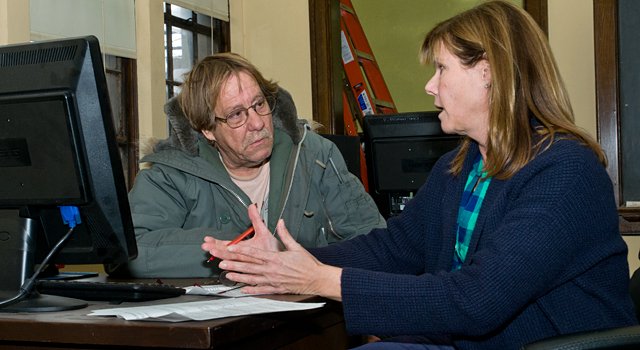

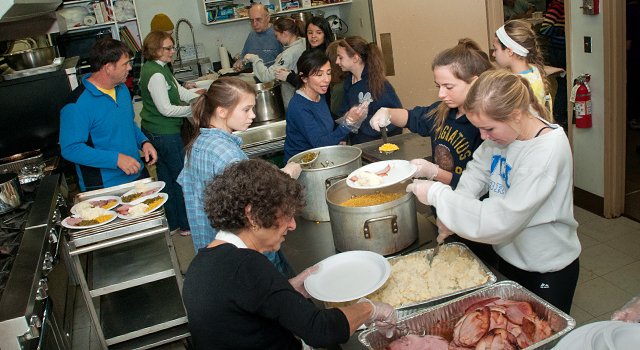
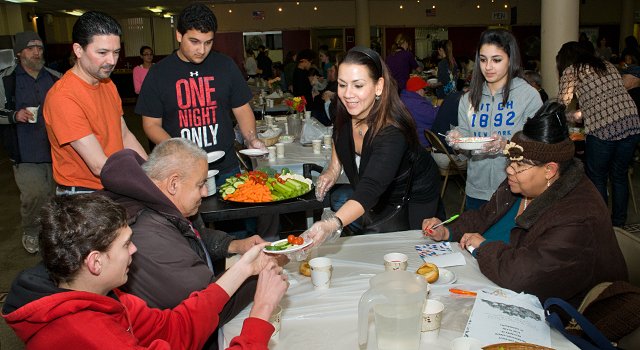

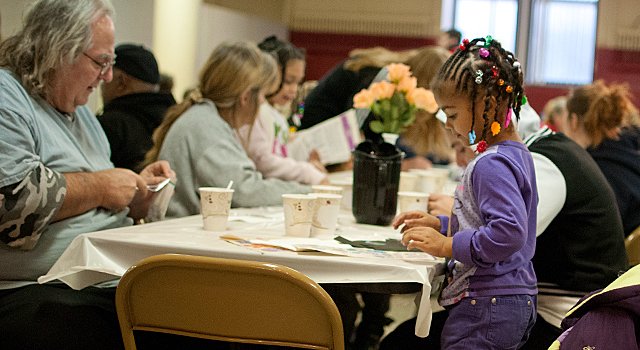

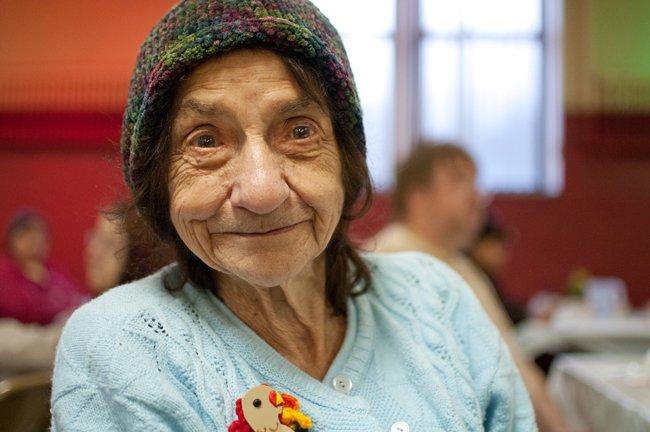







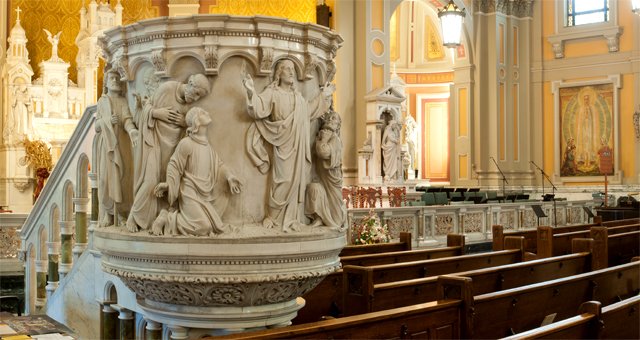









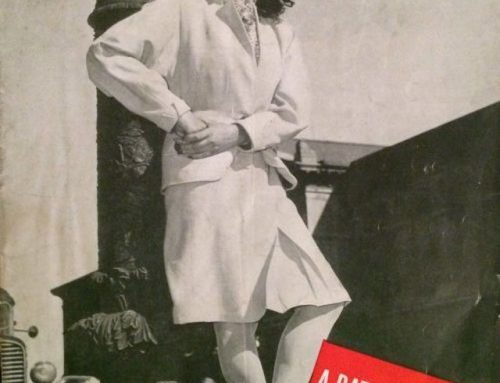

Dan,
Great writing! A long way from our days at Classics.
Lou
Thanks, Lou. Good to see you still enjoy reading, and by your comments about my story, still very intelligent as well. All the best to you.
This is an amazing church–and an inspiring priest.
Thank you, Mr. McGraw, for such a wonderful article about my home parish and Fr. Begin! I will share this on my FB page and hope that many more read this tribute to a Parish that exemplifies what being a community truly means.
Your article is an honest explanation of what St Colman Parish and Community is all about.
Amen!
Thank you so much, HiStel. I very much enjoyed working on this story and meeting many good people in the St Colman parish community.
What wonderful work you do on behalf of those in dire need in your community. Jesus would need well pleased. Continued succes. Sincerely, Louise Fitzgerald/NYC
I also came from a large family like Fr. Bob and I started out helping in some of the programs that were mention in the article.I belong to St. Christopher in Rocky River and like many others I did not feel that I was getting anything out of going to church there. I talked to Elieen Kelly about this and she thought I would fit in good at St. Colman.So 3 months ago I transfer there.I would like to say this has change my life completely.Every Sunday I look forward to going to mass mass there. The people show their love for each other with greetings or hugs or just a plain hand shake.This is what Pope Francis wants to happen in all are Parrish’s. Thank you Eugene wilhelm
Thank you for this great article. As a member of the church it is always great to see positive coverage. We are going in the right direction and this helps so much.
Third generation Detroit Shoreway resident and St. Colman parishioner here. Father Begin has been a personal hero of mine for years. Thank you for writing this.
Great job of presenting the recent history of this parish and some of the people responsible for keeping alive the Spirit.
Our family found the need to ” knock” at St Colman’s door. When our parish closed, my daughter’s wedding plans needed to change. Father Begin was gracious and welcoming. He will always have a special place iny heart.